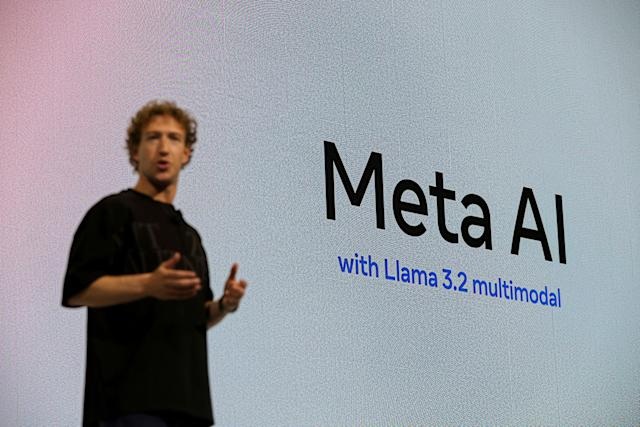Meta to Use AI Interactions for Ad Targeting, Pushing Personalization Beyond Likes and Follows


Meta Platforms said on Wednesday it will begin using people’s interactions with its generative AI tools to personalize content and advertising across its apps, including Facebook and Instagram, starting December 16 — a move that extends the company’s decades-long push to refine ad targeting and revives debate over user privacy.
The change, which applies only to users of Meta AI, will roll out in most regions outside the UK, the European Union, and South Korea. Users will be notified beginning October 7, and critically, they will not have an option to opt out, Meta said.
Interactions with Meta AI — whether by text or voice — will now be added to existing signals like likes and follows to shape recommendations for Reels, group suggestions, and ads. For instance, someone chatting with Meta AI about hiking could later see trail updates from friends, be nudged toward outdoor groups, or be served ads for hiking boots.
Register for Tekedia Mini-MBA edition 18 (Sep 15 – Dec 6, 2025): registration continues.
Tekedia AI in Business Masterclass opens registrations.
Join Tekedia Capital Syndicate and co-invest in great global startups.
Register for Tekedia AI Lab: From Technical Design to Deployment.
“People’s interactions simply are going to be another piece of the input that will inform the personalization of feeds and ads,” Christy Harris, Meta’s privacy policy manager, said. “We’re still in the process of building the first offerings that will make use of this data.”
Meta said that while interactions involving sensitive categories such as religion, political views, sexual orientation, health, or racial and ethnic origin will not be used for ad targeting, conversations on more general interests will feed into the company’s recommendation engines.
The update is designed to scale quickly. Meta AI already counts 1 billion monthly active users across its family of apps, giving the company one of the largest datasets of conversational interactions in the consumer internet space.

CEO Mark Zuckerberg has signaled this direction repeatedly. At the company’s annual shareholder meeting earlier this year, he said the “focus for this year is deepening the experience and making Meta AI the leading personal AI with an emphasis on personalization, voice conversations and entertainment.” At its Connect conference last month, Meta launched its first consumer-ready smart glasses with a built-in display, underscoring its commitment to blending hardware, AI, and platform services.
For Meta, the move represents the next stage in a long-running strategy to squeeze more value from its personalization systems. Advertising still accounts for nearly all of the company’s revenue, and AI-powered tools are increasingly seen as the key to maintaining its dominance as user growth matures.
But the decision also arrives against a fraught backdrop. Meta has faced repeated privacy controversies, most notably the Cambridge Analytica scandal in 2018, when the misuse of Facebook user data for political advertising triggered global scrutiny and led to a $5 billion fine from the U.S. Federal Trade Commission. More recently, Apple’s iOS privacy changes in 2021 — which forced apps to obtain permission before tracking users — significantly disrupted Meta’s ad business and wiped billions off its market value. These episodes underscored the risks of over-reliance on user data and remain fresh in the minds of regulators and investors alike.

Comparatively, Google and Amazon have also been monetizing AI, though largely through cloud-based services that target enterprise clients rather than consumer-facing personalization. Meta’s approach — feeding conversational data directly into its multi-platform ad engine — is more ambitious in scope, marrying AI-driven engagement with advertising at a scale unmatched by rivals.
The rollout may also test regulatory boundaries. The company has deliberately excluded the EU, the UK, and South Korea, regions with stricter data protection rules. By contrast, markets in North America, Latin America, and Asia are expected to see full adoption, offering investors a chance to evaluate the revenue potential before a broader global expansion.
The update highlights both opportunity and risk. Meta’s unmatched scale could give it a lead in AI-driven personalization, but its reliance on user trust and regulatory approval may prove a limiting factor. With competitors like Google and Amazon pursuing different monetization pathways, Meta’s strategy of embedding AI into the heart of its ad business faces the test of delivering measurable returns in 2025.





